10 Common Financial Mistakes Seafarers Make
This is the second article in the personal financial planning for seafarers series by the very experienced Chief Engineer Rajeeve Kaushik. You can read the previous article of the series – Importance of Financial Planning for Seafarers here.
As seafarers, we are very uniquely placed.
We live and work in our workplace as it moves around the world incessantly. Our cabins become our physical possessions for the specific duration of our stay. As senior officers sometimes we do the same ship several times and stay in the same cabins intermittently for a few years too. Boarding and lodging is on the shipowner and so are the medical expenses. We are also told that we’re insured for a certain amount of money.
All this fills us up with a false sense of security and complacency because of a lot of reasons, which actually manifests itself in the forms that are mentioned and explained below.
Because we do not learn to spend on the home-front until we are married, we do not appreciate how much it costs to run a household. We do not develop any perspective of small day to day expenses and learn to plan for the same. This lack of practical experience and understanding of personal finances often leads to some major mistakes, which could have been easily avoided.
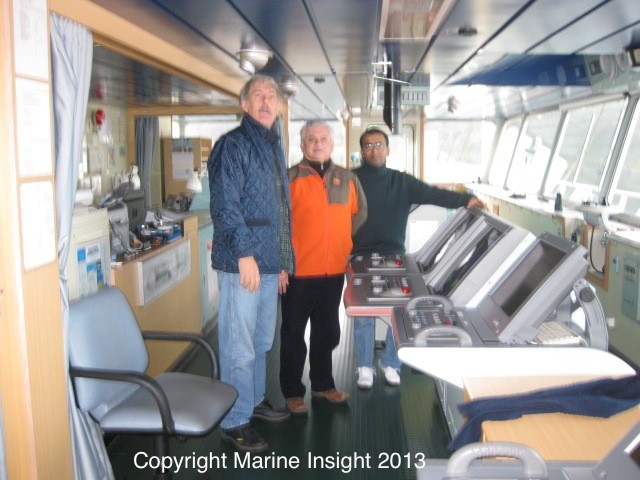
Needless to say, as seafarers we make a lot of financial blunders, which eventually boil down to following common ones:
1. Dependence on Shipowners:
Times are changing and so are shipowners and requirements of seafarers. Just because our salaries have not increased in real terms does not mean that the cost of living onshore has not increased. In fact, the cost of living, medical expenses and also the life aspirations onshore have gone up substantially. Unless we plan our finances wisely and realistically we could be in for a serious shock in our later lives.
2. No Medical Insurance:
Seafarers often do not plan for their own medical insurance. They feel that the shipowner will cover them for any eventuality. This is not true because, during the leave period, MOST of the companies do not cover them. Hence if something happens to seafarers or their families during leave, the medical and other related expenses can be huge. It is therefore advisable to go for a Floater type of policy for your ENTIRE family.
3. No Life Insurance:
A sailor (Officer or non-Officer) thinks that the shipowner is providing them with adequate life cover. Little do seafarers realise that the Insurance cover is only for the tenure of their working period on board. They do not plan for cheaper forms of insurance (called TERM INSURANCE PLANS) while they are young and the premium is less. If they did plan at the age of 22 and took the insurance till the age of 75 they will have to pay way less (about $150 to $200 a year). The coverage for such plans would be in the range of $300,000 and the premium would stay fixed till the age of 75 (or as applicable in your respective country). Remember, TERM PLANS are a risk only plans, meaning that your survivors will be paid in case something happens to you, otherwise the premium will be consumed. It is almost like the ship insurance plans.
4. Wrong Type Of Insurance:
What is worse is that even if seafarers take Life Insurance Policies, they are mostly money back or endowment policies, which do not have a very large coverage amount but in the garb of giving back the money they charge astronomical premiums. Please do not fall for such Life Insurances. Good insurance for you for Half a Million dollars should not cost you more than $300 if you are below 30 years of age and a non-smoker (Medical and health requirements will vary depending on the country and company).
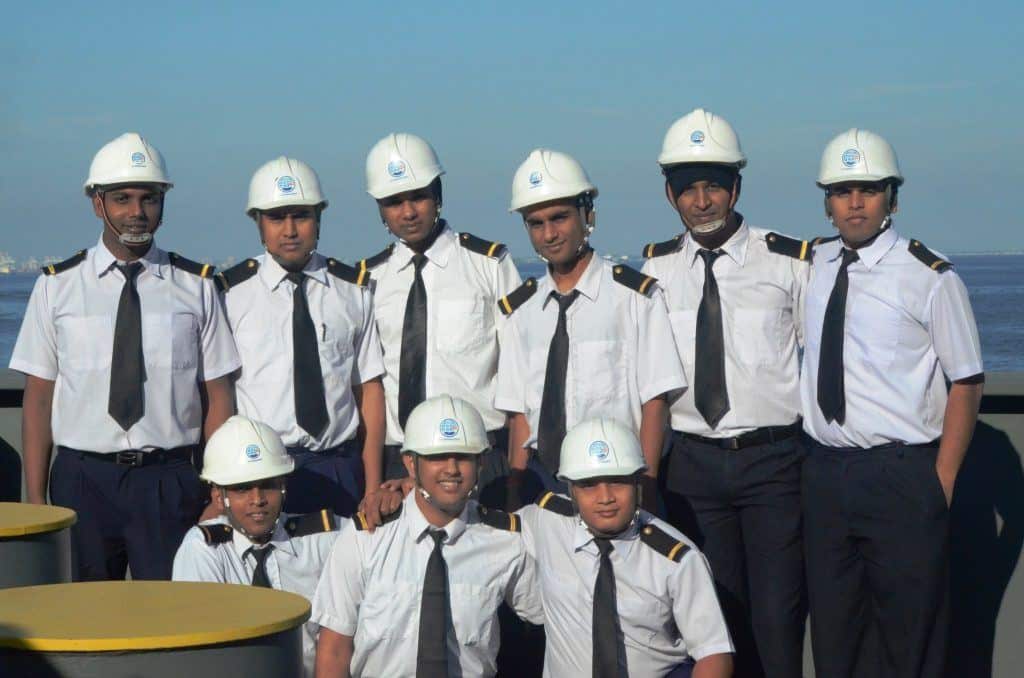
5. N0 Contingency or Emergency Fund:
Today an officer leaves home for a period of 3 to 5 months and a Non-Officer for even more. Though the salary is regularly sent home via ALLOTMENTS, sometimes this does not reach or is not sufficient. There are also situations when a family member is seriously sick and if there is no Health or Medical Insurance the cash outgo can be huge. For such occasions, seafarers must deposit money in a separate account for at least 3 months of HOME EXPENSES so that it serves as an emergency fund.
6. No Proper Plan For Savings:
Though the modern seafarer is getting wiser than their predecessors, most of the times they either do not save or save SUFFICIENT savings. If the seafarer doesn’t start saving in the initial years when he is not married or has any major responsibility, it can get a bit serious as he will lose the advantage of being an early bird.
Let’s take an example to understand this.
In the table shown below Seaman Michael (just for e.g) starts putting away only $100 a month in a scheme giving a return of 12% per year (p.a.) and continues till the age of 31 and STOPS depositing thereafter. However, he does not withdraw and lets his savings continue until the age of 50, WITHOUT adding anything more.
After a few years, he is keeping watch with Second Officer Ruel, who is also the same age as Michael. Ruel finds out about Michael’s plan and starts himself in the same plan and keeps saving $100 every month TILL the age of 50.
Now from the table below it will be very clear to you that despite stopping after 10 years Michael has $ 15,114.31 in his account. Whereas Ruel has only $13333.39 even though he continued with his contribution of $100 till the age of 50. Ruel will never be able to make up for the shortfall created because of his delay of just 5 years.
The third column in Yellow shows what the value of savings/investments would have been if Michael had continued putting his $100 throughout his working period.

7. Locking Into High-Value Houses / Apartments At Inappropriate Terms:
A house is a must for every human being and is the third necessity after food and clothing. I firmly believe that one should acquire a shelter as early in life as possible.
However, one should take consideration of the city that one intends to settle down and also the area. A big and popular Metro maybe a good attraction, but if you intend to make a career at sea, is it worthwhile staying in a bigger city with limited and expensive resources? Shifting to a smaller city or what may be a suburb might be cheaper today and which eventually may easily develop in 5 to 10 years time.
Another aspect of housing is the loan (also called mortgage in some countries). There are various aspects to it. If you take a very high-value loan with a high rate of interest early in life, it may impede or hamper your professional and financial progress and even put a high burden on you during a stage in your life when you need cash for a lot of things.
This is an aspect that I will cover in my future articles, as it forms the basis of mental peace for seafarers.
8. Trusting Various Finance Personnel Easily:
Because of our limited exposure to methods onshore, we start trusting various agents and employees of the bank. Most of the useless plans and insurances are sold to us without our requirement for the same by the beautiful girls at the glittering banks, which they have now become. I have myself been a victim of such mis-selling. All these plans burn a very large hole in your pocket in the long run; it’s very simple- you are buying bananas when actually you need apples.
Most of this wrong guidance comes from known people and relatives, who either sell it to the seafarers themselves or connect them to the wrong people. Stay away from it. Educate yourself and make a wise decision.
9. Spending Too Much On Things You Use Little:
In our initial years at sea, we have longer contracts. As a result, all the latest gadgets that you buy are not utilised. Most of them are bought with the input of the colleagues or friends onshore or because of the advertisements that you see at the airports while joining or signing off from your ship. Just imagine during a 6 months contract you buy $800 iPhone when you actually cannot call with it while at sea. Instead a $300 tab or a Laptop can help you make free calls, send messages via “online messengers” or emails. By the time you sign off from the vessel- the $800 gadget has already become obsolete with a new version already out in the market. The vicious cycle of purchasing irrelevant things thus continues.
Expensive motorbikes or cars are other objects of desire that seafarers purchase and leave home while staying for long periods of time at the sea ( Yet another impulsive buying habit which is a product of “materialistic comparison” with others – mainly family and friends).
I remember a fourth engineer who during his first tenure on board was bent upon buying a BMW car for his father, who drove a modest Maruti 800 and who was strongly against such a waste of money. The fourth engineer would have bought this by taking a loan at a very high rate of interest. Everyone on board had to make an extra effort in explaining to him the futility of his action, especially because he also had an education loan of $20,000.
If the senior officers or those who have spent quite some time at sea do not provide good advice to juniors, the latter land up picking up things of high value and least utility while on board.
10. Not Keeping in Touch With Developments in Respective Countries:
News from home should not only consist of Formula One car racing or cricket match scores. Good news or news of an opportunity can save and make money if you can utilise it at the right time. A lot of you may believe what do these points have to do with financial planning? Actually, it has a lot to do.
Our income from our sailing job is fixed and does not go up with the cost of living in our own country. Hence we have to devise ways and means to make stretch this income. The idea is to use it to generate more returns in an efficient, legal and tax-efficient way.
If this is done properly, I can assure you in about 10-15 years of your working life, you will have two sources of income and in all probabilities, the returns from your investments may outstrip your salary.
Do You Want To Grow Your Hard Earned Money?
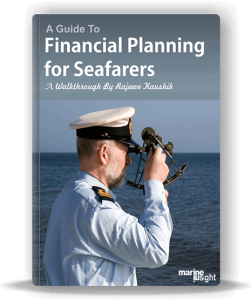
Many seafarers have benefitted from his advice on investment and savings, which has helped them to grow their money exponentially while they work at sea. He has also saved several maritime professionals from making common investment mistakes, which would have eventually lead to heavy loss of their money.
Check out Mr Rajeeve Kaushik’s highly popular eBook – A Guide To Financial Planning Specially made for seafarers. This guide will reveal exactly as to what it takes to have a financially secured future and how you can retire early by making your money work hard for you. Click here to purchase your copy today –> A Guide To Financial Planning
In the forthcoming articles, we will deal with each aspect of this financial planning.
Eventually, we will surely and steadily move in a direction that will ensure Financial Freedom for seafarers.
The financial freedom which will allow you to choose your course of life. It will allow you to choose your stay on board, duration of leave, take the holidays that you desire and when you desire.
However, it will have to go with the thought that something has to be sacrificed today so that something more can be enjoyed tomorrow.
Over to you…
Have you made any of the financial mistakes mentioned above?
Share your experiences in the comments below or ask a question to the author on planning your finances at the Marine Insight Forums here.
You may also like to read –
- Financial Planning For Seafarers: Difference Between Direct Equity Stocks and Equity Mutual Funds
- The Case Of A Financial Cauldron – How Seafarers Can Grow Their Money Smartly
- 5 Ways Seafarers Can Go For Cashless Transactions In India
Disclaimer :
The information contained in this website is for general information purposes only. While we endeavour to keep the information up to date and correct, we make no representations or warranties of any kind, express or implied, about the completeness, accuracy, reliability, suitability or availability with respect to the website or the information, products, services, or related graphics contained on the website for any purpose. Any reliance you place on such information is therefore strictly at your own risk.
In no event will we be liable for any loss or damage including without limitation, indirect or consequential loss or damage, or any loss or damage whatsoever arising from loss of data or profits arising out of, or in connection with, the use of this website.
Do you have info to share with us ? Suggest a correction
Latest Financial Planning You Would Like:
Disclaimer :
The information contained in this website is for general information purposes only. While we endeavour to keep the information up to date and correct, we make no representations or warranties of any kind, express or implied, about the completeness, accuracy, reliability, suitability or availability with respect to the website or the information, products, services, or related graphics contained on the website for any purpose. Any reliance you place on such information is therefore strictly at your own risk.
In no event will we be liable for any loss or damage including without limitation, indirect or consequential loss or damage, or any loss or damage whatsoever arising from loss of data or profits arising out of, or in connection with, the use of this website.

About Author
Rajeeve has been a Chief Engineer for 19 years. He kept his deadline and retired himself on his 50th birthday. With a penchant for reading and writing serious literature and driving long distances, his main hobby is observing and commenting on the economy of the country. He has been helping colleagues at sea by planning their finances and future for over 20 years now. Living in the rapidly diminishing Himalayas, he appreciates every aspect of his beloved country, lying between the Green Hills and the Blue Ocean.
Related Posts
Subscribe To Our Newsletters
By subscribing, you agree to our Privacy Policy and may receive occasional deal communications; you can unsubscribe anytime.





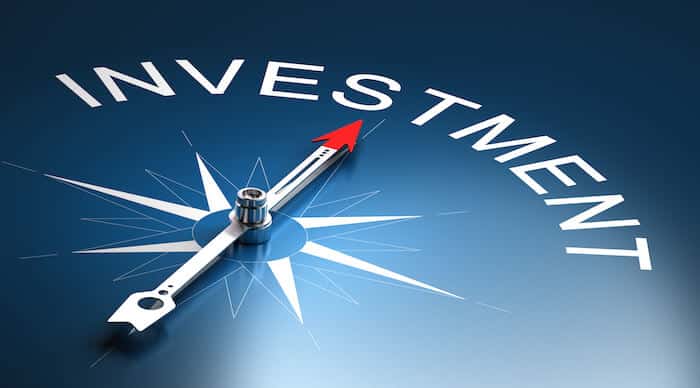




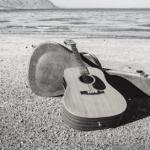
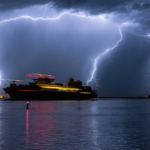

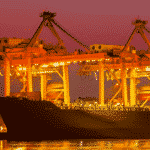
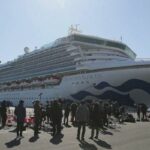

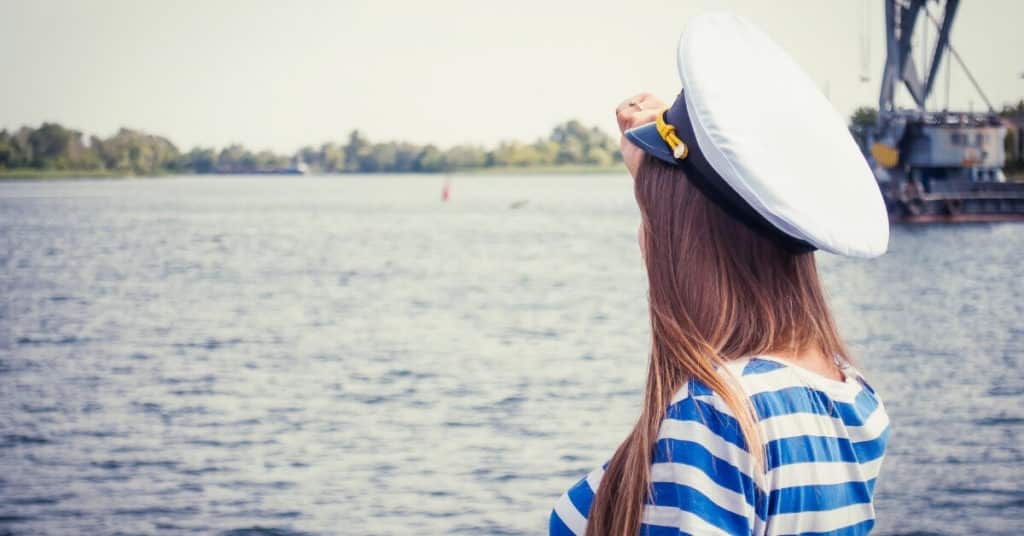
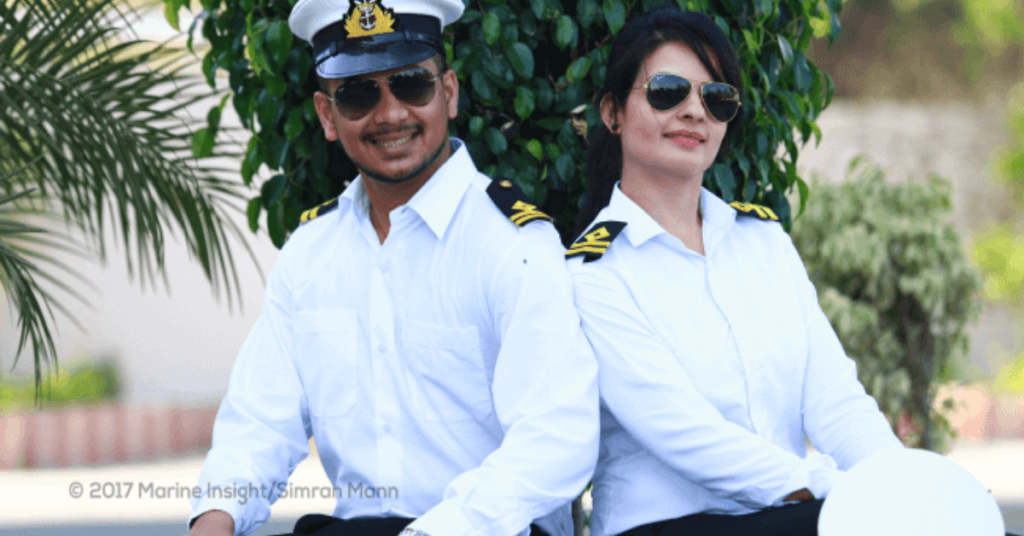



Very usefull advice
Thank you for this article Chief Engineer, will look forward to more useful advice always
Even though I have not started sailing. This article is like a godsent; absolutely timely. Thanks for this wonderful piece. Am sure looking forward to reading the subsequent articles.
Thanks for providing these info
Money doesnt matters onboard, but as u get home the building desire piled up from so long gives up and one spends aimlessly. Some are engulfed by relatives too to invest in their projects.
My husband is a seafarer. Glad I was able to convince him to invest in a variable insurance.
Sir, thank you very much and I am looking forward for more…. you have bost me.
Sir, I am a victim of useless bank investment plan…. I am looking forward on your article on financial planning. Thanks
Seafarer’s should bear in mind that having a good salary is not an indicator of wealth, rather, it is the amount of money you save for it. We should remember that Income-savings= expenses. Not income-expenses=savings.
We should also know how to diversify our money. into needs and wants.
Financial Literacy should be taught.
I was once a victim of insurance,(not good insurance), but I did learn from my mistake..
thnkx for dis precious advice sir….
Valuable article. Some of it are easy enough to just execute it, but certain things need a lot of understanding which is eventually realized at a later stage.
Ladies and Gentlemen, thanks for reading the article and realizing that it is important for you.
If you could also write your nationality below your name or your city, then I can also do some specific research regarding your country and make the articles more relevant for you.
Very Well Written Rajeev. And an excellent way to pass on our experiences to our community at large. For most of the folks in the transport buisness, life just happens. There is a perception of little time availiable for personal planning and developement.
Thanks sir for this timely advice,the best thing is to monitor one’s Cash flow..
I have high regards on seafarers, there sacrifices and their motivations. Most of them as I observe, buy things that depreciates in value and spend money fast on luxuries. To be financially independent, just live modestly and live like the same, nothing changes and invest on real estate more. Stocks flops, savings on conservatively on banks doesn’t yield much nowadays. Before investing on real estate, bear in mind that location is a must and its surroundings.. Read more on real estate and your life will change…
greetings bada saab….read both of them….amazing articles sir….already your fan and now growing impatient for our next class where you can enlighten us (me and a close friend-also c/o)with your valuable experience.Also feeling so stupid to have wasted so much….lol…anyway its never too late….thanks for the vision sir and waiting for your return….cheers
I am so glad I came upon this article . thanks for your experience sir
Hello sir , thank u so fir such a nice information. I m planing to make a fixed depoist in post office , wll it be good for future saving or not . Plz advice me .thank you
So don’t expect of our salary will increast by the company but this article is very making inspiration to my wise life and the future. Thank you.
even dg shipping doesnt know the toil of present day seafarers,for eg.:::
1)even a peon in a mmd doesnt give a s*** about us
2)they’ve increased the fees of all courses in private institutes and exams in mmd thrice that of the previous rate.
3)all this happening when seafarers wage is same for last atleast 20 years
4)in some companies 4theng/3rdoff are joining for only half their salaries for certain period of time,even some are joining as only junior engg/junior off even after having valid coc’s
All these are happening because we seafarers are not able to question them because we dont have such time to ask them ,we come for vacation ,we do our courses nd we go back to sea again,so all these blood drinking leeches using the oppurtunity.
I’m not saying that all seafarers are in a poor state that they have to get some financial help to pay all these exam and course expenses,but everyone has to know that ZERO HAS ITS OWN PRICE
an excellent writeup barha sahab. i have just started my sea going career. i am junior engineer now. this aiticle would be help me inshallah
Ali fawad, from lahore , pakistan
Hi.
I’m a Motorman on a Supply vessel. I’m Portuguese and i have 21 years old.
How can i explain my bank that i want the same savings as Michael with continued savings. And if saving at home would be better, since some banks bankrupt.
I dont know much about finances, so if you could help, that would be amazing.
Thanks for the article, looking forward to hearing from you
Best Regards
Thanks for the valuable pieces of advice. My youngest son joined the merchant marine industry last year at 21 as a 3rd officer. I have instilled in him the value of saving up and investing for his retirement as soon as he gets his first paycheck. On his behalf (as a joint account holder with me) I invest all of his allotment to mutual fund and other financial equity based instruments. And I email to him how his investment performs. I have also invested part of his funds in equities overseas and he has insurance outside of the one given by his company. I am glad that your article affirms my advice to my son. Fortunately my husband and I have our own income and do not rely on my son’s allotment. I am from the Philippines.
Muy buen articulo,es verdad nunca los marinos planeamos a futuro y ahora ,con la baja del precio del petróleo todo parece ir rápidamente cuesta abajo,muchos marinos perderan sus empleos aca en Mexico
Great artclesSir ,I cn not wait forthe rest.It is true us seafarers do not plan for the future,and now wth the oil prices going down,many seamen will loose teir Jobs here at Mexico
Thanks for sharing your experience sir. I m at very beginning hope i would utilize your point very well.
Thanks again.
God bless u.
A readable article with basic inputs……….sums up whats written above.Dear sir, the basic mistake ppl make is to take for granted that we seafarers are idiots with little knowledge about financial management and otherwise.After reading your article i smell the same is your opinion too.Pls understand that with the fresh entrants and current younger crowd a lot of above do not apply at all……ya there may be some mistakes but they are not peculiar to seafarers alone but to everyone. Inspite of discussing such basic and outdated stuff we should rather bring in new ideas to create and preserve wealth which many of our smart seafarer brothers have been able to perceive and execute. I apologise if you find it intriguing but, its just an honest opinion.
Thank you for your honest opinion…
Hello sir,
I study marine engineering, I’ve my IT letter,medical certificate, discharge booklet, basic four mandatory, yellow paper and the Ecowas passport.
I speak fluent english and good french language. Am looking for a place to work which am going to be very grateful if you can help me out sir,
Am 24 years old boy and also single.
These are my contacts sir +2348079753785 and +23481005124008.
Thanks.
Thanks for the information chief, I believe we sailed together before at maersk tanker, still cadet before. Happy to see you here chief. More power to you chief, and Godbless
I beg to disagree with the BMW. The more he thinks big, the more he will likely to succeed, It is his driving unit of motivation and would be motivated to be a chief engineer in early stage of his career. He will surely work hard for it. If he can afford it with his current salary, then why not. . .
Very nice article sir .it is useful to seafarers to improve his future Bright … Thank you .
I appreciate all effort and time taking out after long schedule to draft out this useful info . God bless the writer.
Saving in banks does not guarantee that you are financially stable. Once you stop sailing and start using the money then it will surely decrease and eventually dry up. My advise is to find ways to invest your hard earned money that could gain passive income while you are still working onboard. Save up those extra income and reinvest.
Ever since I wrote the above article, have written 7 more and a book. I hope that they has been able to clarify your doubts .
I have tried to be specific about plans and other steps , at least with regards to India.
If others pay slight attention, they will be able to apply with regards to their own countries.
On 16th June 2016, we had a Seafarer’s seminar on Financial Planning. Which was attended by 115 seafarers.
I try to be specific about my advice and not generic, since that is the only way you will be able to chart out your Financial Independence.
This is pro bono effort from marineinsight.com and myself- which mens it is free and only for your welfare.
If I charge any fee for my advice during retirement, then it will defeat the basic purpose of advising you on Financial independence and an early retirement.
Your wishes and cooperation of those whom I sailed with ,have made me self-sufficient, and now it is pay it forward time for me.
So help me god!!!
In love with all your articles. How can I be a full time member of marine insight. Thanks
Kudos!
sir i have started my career with gp rating. am good at communication. I been through shit! do i really deserve this job? let me know. i was ca student actually. lot know the things but i m really confused as of now.!
Thank you, i did liked this article
@Amit: Thank You.
Thank you sir for helping us with your knowledge and experience
@Harshit: It is a teamwork. As Margaret Fuller said, “If you have knowledge, let others light their candles in it”.
Savings? 12% growth per year? Who will give you that?
You didnt mention about inflation. $100 20 years ago and now is a quiye different REAL VALUE. Regards
Thank you so much sir for your valuable guidance.. hopefully i will follow ASAP.
@Rajeev: Good luck